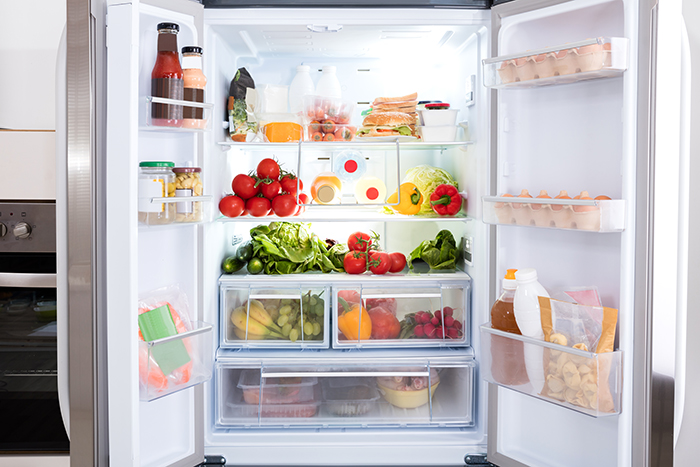
Texture and taste of the fruits and vegetables you buy and cook also depends on how you store them. You may buy the best produce but how you store it has a deep impact on how your food tastes.
As it is often said that “one bad apple spoils the others”, this holds true for fruits and vegetables when stored together.
Do not store fruits and vegetables together as some fruits emit high levels of ethylene (the ripening agent) that prematurely ripen and spoil surrounding vegetables.
Before storing vegetables, remove rubber bands and trim any leafy ends. Pack vegetables loosely in the refrigerator and leave enough space, say about an inch between them. The closer the vegetables are placed to each other; chances of them rotting is high.
Leave the bag in which you store the vegetable slightly open for good air circulation.
Leafy greens such as spinach, fenugreek, kale, etc., can be washed before storing by soaking them in a sink full of water with salt to get rid of dirt and germs, while soft herbs and mushrooms should not be washed until right before they are used.
For soft and bushy herbs such as fresh basil, dill, mint, and parsley trim their stems. Then, place the herbs in a vase or jar of cool water. Basil and mint survive well at room temperature, so store these herbs on a windowsill facing sunlight. For all other herbs listed above, refrigeration is the key. To keep your herbs fresh for as long as possible, trim the stems and change the water every couple of days. Wash just prior to use.
Coriander/cilantro leaves and chillies can be stored by trimming their stems, lining an air tight box with damp tissue paper, placing the leaves in it and refrigerating. Keep moistening the tissue paper for damp conditions. Wash just before use. Curry leaves can be stored in an airtight container and refrigerated. The leaves remain good for a week.
Fruits such as avocados, tomatoes, mangoes, melons, apples, and pears will continue to ripen if left sitting out, while grapes, all citrus fruits, and berries will only deteriorate if left out and should be refrigerated.
Bananas in particular ripen very quickly, and will also speed the ripening of any nearby fruits. Therefore, their ripening can be slowed by wrapping their tails with cling film and not refrigerating them.
Potatoes do not thrive in wet and damp environment. They need to be stored in a place where there is dim lighting and dry and pleasant temperature. The refrigerator is too cold for them. Place them in a dry cardboard box or brown paper bag to keep light away in the pantry or cellar. Keep them away from onions, which emit gases that speed ripening and encourage the potatoes to sprout.
Onions and garlic need a well-ventilated area for storage that’s not humid and need no refrigeration.
With these pointers on storage, you need not compromise on the texture and quality of your food henceforth.
—lifestyle@timesofoman .com